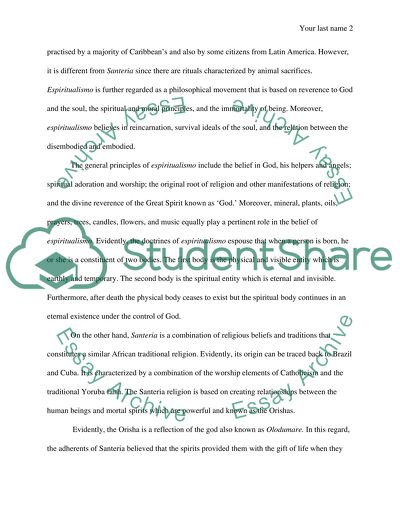Cite this document
(“Compare curanderismo, espiritualismo, with Afro-Caribbean Santeria, Essay”, n.d.)
Retrieved from https://studentshare.org/religion-and-theology/1478915-compare-curanderismo-espiritualismo-with-afro-caribbean-santeria-pentecostalism
Retrieved from https://studentshare.org/religion-and-theology/1478915-compare-curanderismo-espiritualismo-with-afro-caribbean-santeria-pentecostalism
(Compare Curanderismo, Espiritualismo, With Afro-Caribbean Santeria, Essay)
https://studentshare.org/religion-and-theology/1478915-compare-curanderismo-espiritualismo-with-afro-caribbean-santeria-pentecostalism.
https://studentshare.org/religion-and-theology/1478915-compare-curanderismo-espiritualismo-with-afro-caribbean-santeria-pentecostalism.
“Compare Curanderismo, Espiritualismo, With Afro-Caribbean Santeria, Essay”, n.d. https://studentshare.org/religion-and-theology/1478915-compare-curanderismo-espiritualismo-with-afro-caribbean-santeria-pentecostalism.


